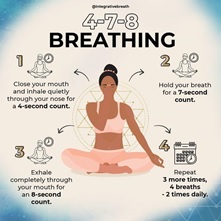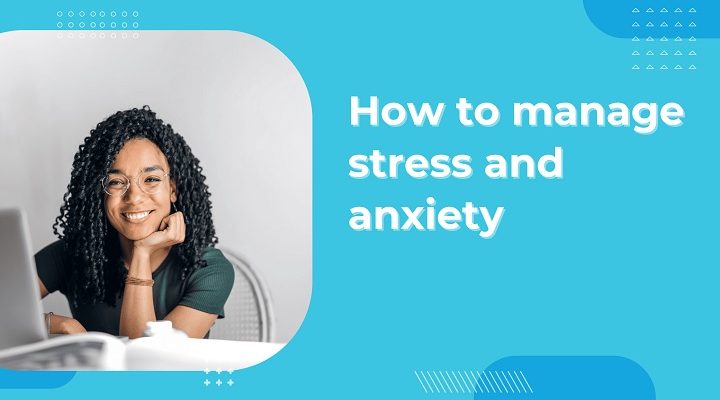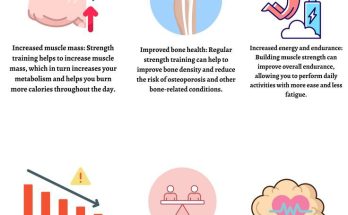Managing stress and anxiety might be seen as difficult but this article will indulge you in simple tips to manage stress and anxiety.
What is stress and anxiety?
Stress is defined by WHO as “a state of worry or mental tension caused by a difficult situation“.
Stress is an overwhelming situation where you are emotionally or physically drained or worn out. Stress could be considered a normal part of life because the body undergoes changes resulting in emotional, mental, and physical responses. Stress could be useful to our growth or could also cause significant problems for our bodies. Stress releases neurochemicals and hormones that prepare us to take action.
Anxiety is a normal stress reaction. It is a normal reaction that could cause fear, worry, adrenaline rush (rapid heartbeat), dread, and uneasiness but anxiety disorder is a mental health condition characterized by severe worry, dread, or fear that can interfere with your daily activity/life. Anxiety can help us focus our attention on our surroundings and be alert to notice any situation.
Stress can induce anxiety by triggering the body’s acute stress response (flight-to-fight response) which can lead to an increase in heart rate, restlessness, trouble concentrating, etc. Stress triggers anxiety.
Symptoms of Stress and Anxiety
Stress and anxiety are first noticed via their symptoms and this helps in managing stress and anxiety. A few of these symptoms include.
- Experiencing an increase in heart rate(adrenaline rush).
- Feeling restless or irritable.
- Experiencing difficulty in concentrating or making decisions.
- Sweating.
- Muscle tension or pain.
- Worsening mental health condition.
- Feeling overwhelmed or out of control.
Tips for Managing Stress and Anxiety.
There are quite simple ways to take care of yourself and reduce or manage stress and anxiety. They include:

Breathing exercises: Take deep breaths and stretch. Deep breaths can help you unwind. It also clears your clogged head and mind. Deep breaths help you in managing stress and anxiety. Try taking about three to four deep breaths, in and out daily.

Prioritize sleep: Get plenty of sleep! Yes, get enough sleep. Sleep transports you away from your trouble realms and keeps you at ease. When you get plenty of sleep, your mind is refreshed and your body energetic.

- Eat healthy: Foods are a source of happiness. Personally, Food is peace of mind. It has been scientifically proven that some foods reduce or manage stress and anxiety due to some properties found in them. These foods include,
- Avocado: contains monounsaturated fats which aids to reduce stress level.
- Pumpkin seeds: contains magnesium and amino acid tryptophan to improve mood.
- Turmeric: has an abundance of compound curcumin which has anti-inflammatory properties that helps reduce stress.Yogurt: contains probiotics which improves gut health and reduces stress level.Dark chocolates: have flavonoids which reduces stress level.Salmon: rich in omega-3-fatty acid and aids to improve mood and reduce stress, and many more.Nuts (ground nut and cashew nut): High in magnesium which reduces stress and anxiety.Pap: contains tryptophan, an amino acid which has a calming effect.
- Watermelon: high in antioxidants which protects against oxidative stress.

Get professional help if necessary: Ensure to see a counsellor or a professional psychologist if anxiety creeps in on your mental health and is dealing with you mentally and psychologically. When you get so overwhelmed or feel way more anxious than ever, over things no matter how light or big.

Conclusion
Stress and anxiety shouldn’t necessarily be a problem if you learn to manage them. Using the aforementioned tips indulge yourself in managing stress and anxiety and you will be glad you did.
Stress is natural, anxiety can also be natural but it can also be an enemy. Anxiety is natural when you begin to feel anxious just before your interview, presentation, exam, etc. Clamping of your hand and sweat is all normal. However, don’t wait till it all becomes abnormal before you take those tips seriously.



